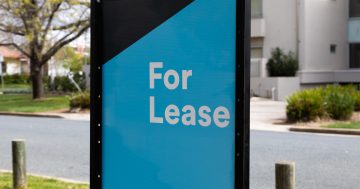
Canberra needs a coherent strategy and framework to support all housing industry stakeholders including homebuyers, tenants and investors. Photo: Region Media.
The 2020 ACT election is almost here, and with each electoral cycle, the property sector waits for our local politicians to propose more innovative solutions for Canberra housing.
Instead of knee-jerk reactions and recycling of discredited policies, Canberra needs a coherent strategy and framework to support homeowners, tenants and investors.
So this election, here is what we would love to see delivered in the next four years.
First, a focus on housing supply and affordability. Lack of suitable, affordable accommodation is keeping Canberra vacancy rates historically low resulting in some of the highest rents in the country. Expensive land, coupled with infill disincentives, are further restricting the affordable supply of homes for sale.
There are positive proposals to increase social and community housing; however, the economics mean that on their own these will not deliver the required affordable homeownership and rental options.
Some candidates and parties have suggested that investment property owners are driven by greed and disrespect tenants’ rights, and that rental property standards should be regulated at a higher level than those for live-in owners, and that forcing owners to increase rents annually is in the interests of tenants already dealing with the high cost of living.
None of this makes sense.
We are looking for a government that will increase competition and supply in the ACT land market to ensure market forces rather than government subsidies drive affordability.
We also want to see them revisit the Lease Variation Charge on residential redevelopment, which penalises homeowners for subdividing blocks to create multiple dwellings. Get the settings right and instead of a tax that raises little revenue, we can incentivise increased supply of in-demand townhouses across Canberra, improve affordability and increase the effectiveness and efficiency of existing local infrastructure.
We also want a government that encourages private investors to meet the shortfall in government housing through property investment. Which leads me to my next point: ensuring property is an attractive investment option.
The most expensive housing policies are those that inhibit investment in housing. Prohibitive levels of rates and land tax, currently higher for investors than owner-occupiers, discourage investment in property. Reduced demand leads to a lack of rental supply. Low supply drives up rents and reduces affordability. We need to break this cycle.
Similarly, setting unrealistic standards for rental properties (not required for other homes), such as minimum EER, removal of owners’ rights, or interfering with the competitive market for rental pricing, are reactive solutions which fail to address the real problem of supply and affordability. We need to ensure investment in ACT housing is as attractive as in other jurisdictions around Australia. Get the settings right for ownership costs and intelligent regulation of standards and we will increase demand from mum and dad investors whose motivations often skew to long-term growth rather than short-term income.
It is also essential that government takes real action toward increasing affordable rental options.
Build to rent, where developers build properties to be rented rather than sold, will become a real option and we support increased initiatives. It is important to recognise that even in mature build-to-rent markets such as London, this only provides a single-digit percentage of accommodation and that the drivers for these projects are low vacancy rates and high incomes. A vibrant mum-and-dad investor market alongside multinational investors will be critical to future affordability.
It’s also important to see more consultation with the industry. No, really.
True consultation with industry and all stakeholders has been absent for some time and is leading to poorly informed decisions about the fundamental accommodation needs of Canberrans.
Reactive decisions which cater to vocal special interest groups are no way to run an important sector of the economy. Rates, land tax, stamp duty and other charges comprise much of the revenue that keeps our city operational and a great place to live. It is counter-intuitive to treat this sector as an afterthought in decision making.
Let’s deal with housing supply and affordability through collaboration, not confrontation. The real estate industry welcomes collaborative round table discussions with all stakeholders including government, housing associations, owners, tenants, agents, and lobby groups. Talk to the industry about outcomes and we will avoid policy achieving the opposite of its intentions. Decisions that impact the lives of homeowners and residents should not be combative. We all need win-win solutions ahead of political point-scoring.
That’s my list. If the next ACT Government commits to those simple ideas, we will improve opportunities for all Canberrans.
John Minns is the Managing Director of Independent. John has been an industry leader for over 30 years in the residential real estate market and has worked closely with industry, government and consumers on market-based solutions over that time.



















